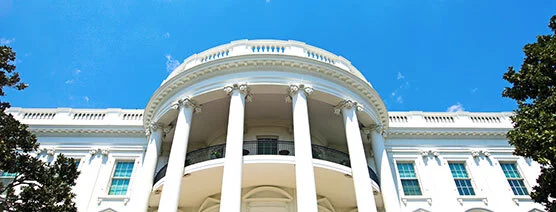Trump's First 100 Days: Banking & Financial Services
While existing regulations won't be erased overnight, the Trump Administration can quickly rescind informal agency guidance, including advisory opinions, interpretive rules and policy statements, creating opportunities for swift deregulatory action.
AT A GLANCE
- Under Biden, the Consumer Financial Protection Bureau (CFPB) advanced a number of high-profile rules and expanded its supervisory authority. Trump is expected to quickly replace CFPB Director Rohit Chopra, curtail certain rulemaking activity and rescind many Biden-era policy statements.
- The Trump Administration is expected to adopt a tech-forward stance, promoting innovation across financial services.
- The Trump administration's pro-business stance is expected to increase bank M&A activity.
BANKING & FINANCIAL SERVICES
Impact of the New Trump Administration on Consumer Financial Services, FinTech and Payments
The new Trump Administration will likely bring significant changes to consumer finance regulations. Federal agencies will balance advancing key priorities before the new administration takes office against the risk of those initiatives being reversed. For instance, the CFPB has been expediting issuance of high-profile rules, such as a final rule concerning supervision of larger participants in nonbank digital payments and a proposed rule on data brokers under the Fair Credit Reporting Act, and may continue to do so in the last days of the Biden Administration with respect to other rules expected on overdraft fees and medical debt reporting under the Fair Credit Reporting Act. Conversely, other agencies, such as the Federal Reserve, may delay decisions on matters like Regulation II and capital requirements. Companies should closely monitor agency behavior as these shifts unfold.
Consumer Finance
While existing regulations won't be erased overnight, the Trump Administration can quickly rescind informal agency guidance, including advisory opinions, interpretive rules and policy statements, creating opportunities for swift deregulatory action. Rules established through the formal notice-and-comment process are greater entrenched and will require more effort to undo. With a Republican-controlled Congress, the new administration may also use tools, like the Congressional Review Act, to overturn recently-finalized regulations, though the focus will likely begin with dismantling informal guidance.
Regulation, Investigation and Enforcement
Financial institutions facing regulatory scrutiny may experience opportunities and challenges. The new administration may review or pause ongoing investigations, potentially allowing companies to negotiate favorable resolutions before the transition is complete. Nonetheless, past conduct remains at risk of enforcement due to existing staff recommendations and long statutes of limitations. At the same time, states are likely to continue, or even intensify, their own enforcement activities. Companies should maintain robust compliance efforts and consider state-level regulatory actions as part of their overall strategy.
FinTech and Payments
The affirmative regulatory priorities of the Trump Administration remain unclear. While some may expect a traditional Republican deregulatory approach, a more populist agenda could maintain focus on Biden-era initiatives, like addressing “junk fees.” Oversight of the Federal Housing Finance Agency and government-sponsored enterprises will also demand attention as the administration’s policies develop. Companies should prepare for increased activity at the state level, with states expected to aggressively enforce consumer protection, data privacy, and banking regulations to address potential gaps in federal oversight.
FinTech Innovation
The Trump Administration is expected to adopt a tech-forward stance, promoting innovation across financial services. This suggests a regulatory environment that is favorable to cryptocurrencies, digital assets and open banking initiatives and aligns with broader efforts to modernize the financial ecosystem. We may also see a revival of agency initiatives to expand the use of nonbank charters or grant direct access to federal agency services, such as Federal Reserve master accounts. Adapting to this evolving regulatory environment will be crucial for navigating the next four years.
Commercial Real Estate Lending
The Trump Administration's focus on immigration policy and reinstating certain Trump-era executive orders is unlikely to have an immediate or significant impact on commercial real estate lending. The primary driver in this market is interest rates, which are governed by the Federal Reserve. With Chairman Jerome Powell publicly stating he will not resign, even if asked to do so, no drastic changes in Fed policy are expected.
Bank M&A
The new administration's pro-business stance is expected to increase bank mergers and acquisitions. A stronger focus on reducing inflation and lowering interest rates should also improve bank earnings and valuations through increased net interest margins and higher valuations for bond portfolios. These factors have already led to a recent stock market rally for bank stocks.
Additionally, the new administration may reconsider the increased Basel III capital requirements for large banks and reduce regulatory burdens by rolling back existing regulations, such as the Corporate Transparency Act and the CFPB's small business lending rule.
This article is part of a broader analysis examining the anticipated challenges and opportunities created by an administration change. Attorneys from several different practice areas contributed to this series of articles across multiple legal areas.
